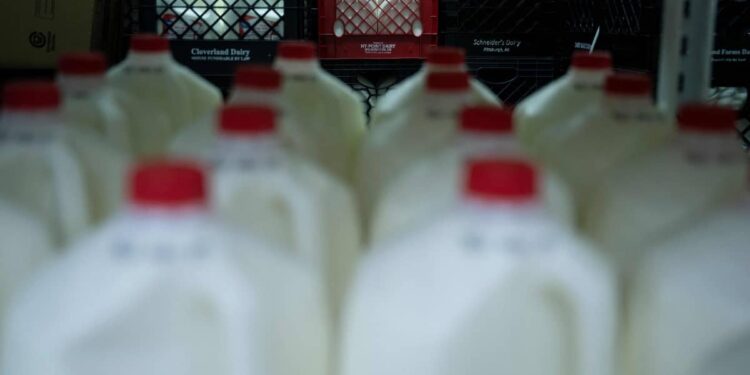Traces of the H5N1 virus have been detected in pasteurized cow’s milk in the United States, American authorities said on Tuesday, specifying that the samples probably posed no risk to human health.
• Read also: Avian flu: discovery of the H5N1 virus in milk in the United States
• Read also: Transmission of H5N1 avian flu to humans ‘is a huge concern’
During a large national investigation, viral particles were discovered in “milk from affected animals, in the processing system and on the shelves”, announced the United States Medicines Agency (FDA) in a press release .
Nonetheless, “if a virus is detected in raw milk, pasteurization is generally expected to eliminate pathogens to a level that does not pose a health risk to consumers,” she explained.
An outbreak of highly pathogenic avian influenza A (H5N1) spread among the country’s dairy herds and infected one person in early April, who presented mild symptoms.
Although the H5N1 strain has killed millions of poultry during the current wave, affected cows have not become seriously ill.
Agency scientists are working to further study positive samples using “egg viability studies.” They involve injecting a sample into an embryonated chicken egg and checking whether an active virus is replicating.
“Additional analysis is underway on milk on store shelves across the country, as well as work to assess any potential differentiation for different types of dairy products (e.g. whole milk, cream)” , added the FDA.
Avian flu has already been detected in raw milk, the consumption of which has long been discouraged by health authorities.



